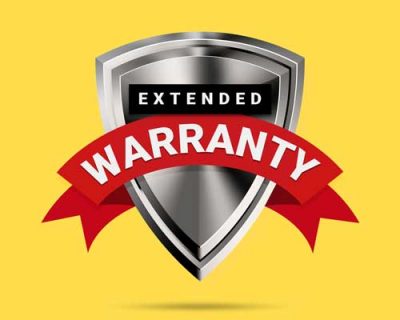What is an extended car warranty?
An extended car warranty is a service contract that either protects you from expensive vehicle repairs that happen after the manufacturer’s warranty expires, or these warranties can cover costs the manufacturer’s warranty does not pay for. Extended car warranties function like an insurance policy and the coverage is not affiliated with car manufacturers, although dealers usually sell extended warranties.
Extended car warranty contracts spell out what repairs they will pay for and under what conditions. The contract specifies what damage or failure of parts is not covered. In general, extended car warranties require that all scheduled recommended maintenance as published by the car manufacturer be followed for the policy to remain valid.
Inclusionary vs. Exclusionary coverage
Inclusionary and exclusionary coverage are simply two different ways of writing an extended car warranty. An inclusionary policy only covers the specific parts and situations laid out in the plan.
An exclusionary coverage plan is generally considered to be much stronger coverage because it covers everything not specifically excluded in the policy. While the exclusion lists can be extensive, these policies still generally cover far more than inclusionary policies due to the sheer number of parts in a vehicle. Normal wear-and-tear is not included in either type of policy. Exclusionary plans cover mechanical issues with:
- Engines
- Transmissions and transfer case
- Differential assembly
- Seals and gaskets
- Drive axle
- Electrical
- A/C
- Brakes
- Front and rear suspension
- Fuel delivery system
- Cooling system

Each item on this list contains several sub-items. For example, there could be 40 different parts and components under the details of the engine, which would be included in an exclusionary plan.
How Extended Car Warranties Work with New Cars
Before you buy an extended warranty for a new car, be sure to know what type of coverage is included in the policy. New car warranties can be sold by the vehicle manufacturer to mirror the original warranty that comes with the car, but for a period of time after the original warranty expires. Third parties also sell extended warranties that go into effect after the manufacturer’s warranty expires and you will want to do a little research to determine if a third party warranty is a better deal than what the car dealership is selling.
Keep in mind, the term “service contract” is often used interchangeably with the term “warranties.”
These contracts begin at the time of purchase to cover a very long list of parts and systems should repairs be needed. However, these parts may be covered by the manufacturer’s warranty. If a repair is covered by the manufacturer’s warranty, the vast majority of service contract warranties require the repair be processed under the manufacturer’s warranty and not the extended car warranty service contract. If a repair is not covered by the manufacturer’s warranty, then the extended warranty holder would follow the claims process. This usually requires a call to the warranty company for pre-approval and to verify that the repair will be covered.
How Extended Car Warranties Work with Used Cars
If your car is used or already out of the manufacturer’s warranty policy period, you have some options with extended car warranties. From bumper to bumper coverage to powertrain-only coverage, each warranty covers different parts and breakdown situations. Electronics are rarely covered except as a separate policy. If the used car is already out of warranty, getting service is simply a matter of following the car warranty plan’s claims process: call the claims line to have the repair and the shop you want to use verified and pre-approved.
Repairs may not be approved until a pre-approved mechanic verifies the cause and type of problem to the plan administrator. Even though the car is used, the majority of plans require that all manufacturer-suggested scheduled maintenance be completed on time. If the previous owner did not keep up with this maintenance, there could be claim denials later, regardless of whether or not the maintenance issue caused the breakdown. When looking at an extended car warranty for a used car, be sure to find out how mileage is calculated (from zero or from when you bought the car) and how previous maintenance is documented.

An extended car warranty isn’t for everyone or every car, and the Federal Trade Commission warns consumers against buying an extended warranty that covers what the car manufacturer’s warranty already provides. However, there are five big questions to ask when considering whether or not you should buy an extended car warranty.
-
What is the claims process? Each extended warranty company creates their own claims processes. Some require multiple steps before a claim is actually approved. Be sure to review the claims processes before purchasing a plan to make sure that the process is fair and simple.
-
Does my mechanic easily accept payments through the warranty company? The best extended warranty in the world won’t do you much good if your local mechanics refuse to work with the process. Call your preferred mechanic and ask if he or she is familiar with the warranty plan you are considering and if he or she already works with them or is willing to follow their process. Some extended warranties also have a reimbursement option for those in areas where mechanics do not participate in car warranty programs. Be sure to check the terms of the plan you are considering.
-
Does the extended warranty cost outweigh the expected repair costs? While there is no way to be sure your estimated costs are the only repairs you will face, you can look up the most expensive repairs needed for covered items under the warranty you are considering. For example, a head gasket replacement could cost $1,600. Compare that with how much your plan is per year and how much your plan’s deductible is.
-
Is your vehicle already covered? Another big consideration is whether your car is already covered for the items offered in the extended warranty. With many manufacturers offering longer factory warranties, you may not need a full extended warranty to cover your car since the manufacturer’s warranty would take precedence when repairs are needed. In particular, some manufacturers offer 10 year/100,000 mile powertrain warranties so you may only need an electronics coverage package and engine package to fill holes in your factory warranty.
-
Did you buy the car new or used? If you bought the car new, chances are you know how it has been maintained and if it potentially needs future repairs. However, if you bought your car used, you may have no idea what condition the mechanical components of the car are in. In this case, provided the extended warranty makes an exception for maintenance under previous owners, an extended warranty may give you peace of mind when buying a used car, especially one with over 100,000 miles.
The Bottom Line on Extended Car Warranties
You will need to weigh the cost of an extended warranty for your new or used vehicle against the plan coverage to determine if you should buy the warranty. Extended car warranties have their place if you plan to keep your vehicle beyond the manufacturer’s warranty or if you intend to keep a used car well into the future. Ask if the warranty can be transferred to a new owner before you buy as the contract adds value to your vehicle, and always keep documentation of maintenance records to ensure there are no hassles when it comes time to use the warranty.


